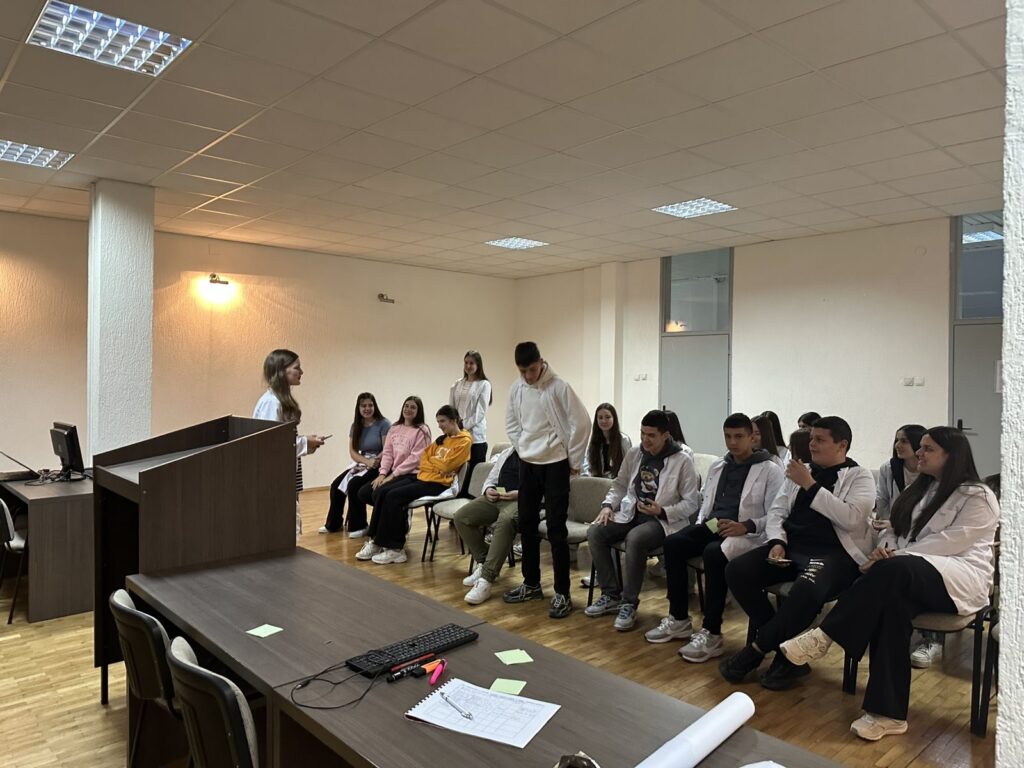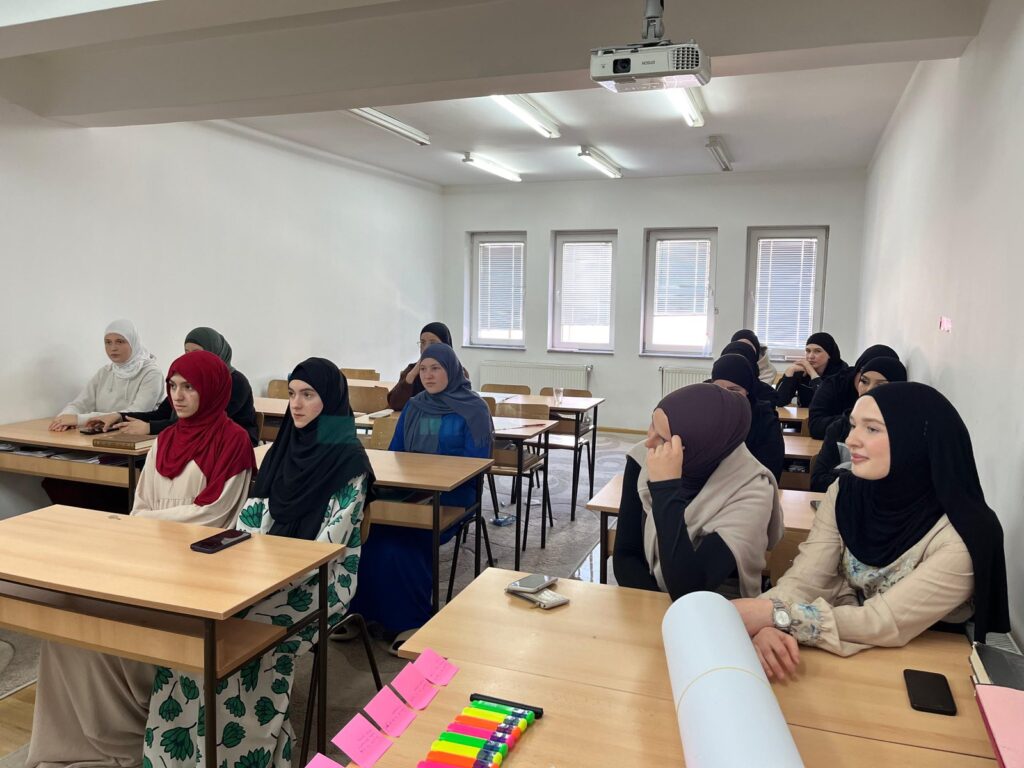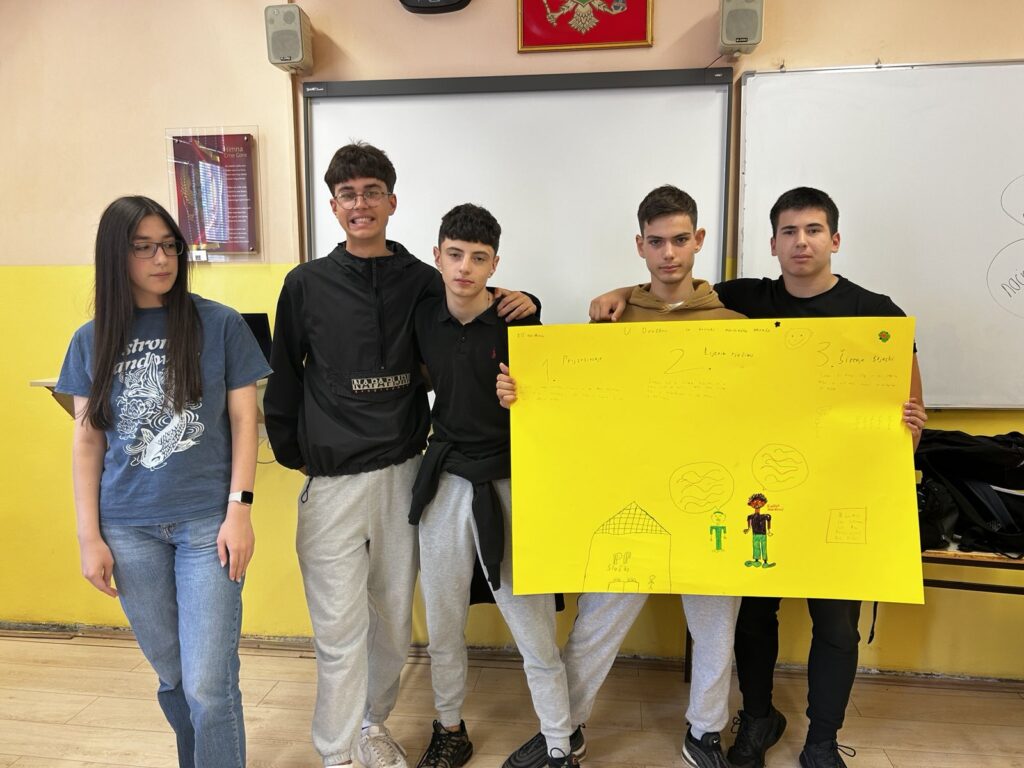Young people who learn, share knowledge, and empower each other demonstrate that they are not just the future, but also drivers of change in the present – through empathy, responsibility, courage, and unity. This is exactly what high school students indicate, as after completing the Intercultural Camp in Petrovac , they carried out a series of peer workshops in Berane, Danilovgrad, Zeta, Plav, Bijelo Polje, Rožaje, and Podgorica.
These interesting workshops are gathered young provided them with invaluable space to develop their potential, and enabled them to express themselves, learn, and connect through important topics such as active participation in youth policy, preservation of mental health, identity empowerment, or learning about empathy and togetherness.
“Youth policy is one of the key topics that should be discussed among high school students, as they are the target group of that policy. Young people are the future, and it is important that they are consulted about their rights and actively involved in amendments to the Youth Law,” says Marija Mia Maraš , a student at the “Golubovci” Secondary Mixed School who conducted the workshop Your Rights – Your Voice! Youth Policy and the Youth Law.
Amina Kačar , a student at the “Mehmed Fatih” Madrasa, led the workshop Emotions at young people. Emotions in Young People. “This workshop was important for young people because it helped them recognise and name their own emotions. It contributed to strengthening mental health and mutual understanding, which is especially important in the sensitive period of our growing up. Also, it helped me show my peers what I had learned at the Intercultural Camp,” she says.
Vanja Vasilijević, a student at the “Petar I Petrović Njegoš” Gymnasium, worked with her colleagues on the workshop Fear of Failure. “Fear is a good ally, but a bad leader. Different fears follow us through life, but they all actually relate to one: what if I make a mistake and disappoint? Therefore, the aim of my workshop was to help relieve excessive expectations and feelings of pressure, through a relaxed atmosphere and psychological games,” Vanja points out.
“It is important for young people to go through these workshops because in doing so they learn to understand and respect the differences that exist in society, but also to clarify their own identity, develop empathy towards others, regardless of faith, nation, or culture. Through open dialogue and joint work, foundations are laid for a more tolerant and connected society,” says Jana Jovićević, a student at the “Vaso Aligrudić” Electrical Engineering School, who conducted the workshop Who Am I Among Others? Ethics, Culture, Identity.
Lina Muratovic and Julija Joksimović, students at the “Dr Branko Zogović” Secondary Medical School, also emphasise that these workshops are helpful for young people in understanding themselves “That way, they better understand their own emotions, develop empathy towards others, and learn how to take care of their mental health. At a time when we are facing numerous challenges and changes, such activities provide support, a sense of togetherness, and a safe space for expression. Also, the workshops raise awareness that we are not alone in our feelings and that seeking help is a sign of strength, not weakness,” they state following their workshop Mental Health in Young People.
The workshop How Not to Postpone Life encouraged participants to recognise their patterns of procrastination and learn how to get going more easily with everyday tasks. Through practical advice and the sharing of experiences, they became aware of how important it is not to wait for the “right moment” for things that matter to them, but also to develop a more responsible and conscious attitude towards their time and life choices,” says Amar Agović, a student at the “30th September” Gymnasium.
Marijana Lainović, a student at the Secondary Vocational School in Bijelo Polje, carries vivid impressions after the workshop Differences That Connect Us. “It is important that young people lead workshops because they are the voice of their generation – they best understand how to convey important messages to their peers. In this way, they not only help others but also gain new knowledge themselves, develop self-confidence, and become ready to initiate positive changes in their community,” she concludes.
The peer workshops were carried out within the framework of the project HEART: support for the empowerment and resilience of young people today, financially supported by the European Union with co-financing from the Ministry of Public Administration.
Ivana Matanović, Programme Associate



